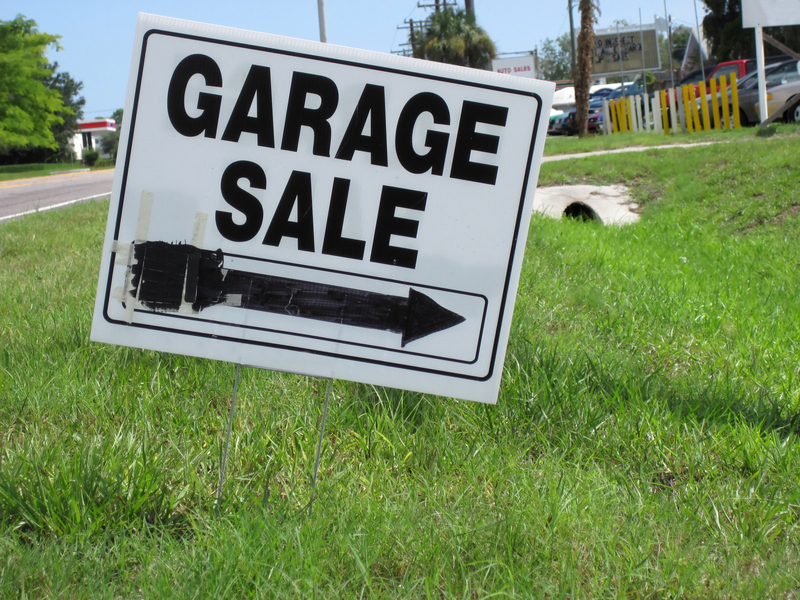Beyond the Horizon: Prioritizing Outer Space Trash Management
Posted on 07/02/2025
With the rapid advancement of space technology and the increasing number of satellites and spacecraft being launched into orbit, the issue of outer space trash management has become a pressing concern. As we continue to explore and utilize space, we must also take responsibility for maintaining its cleanliness and sustainability. In this article, we will delve into the various aspects of space debris, its potential threats, and the efforts being made towards better management and removal.
The Growing Threat of Space Debris
Space debris, also known as space junk or orbital debris, refers to all man-made objects that are no longer useful in space. These include old satellites, rocket parts, and fragments from collisions or explosions. With over 20,000 objects larger than a softball currently orbiting Earth and thousands more too small to track, the issue of space debris has already reached critical levels.
The increasing amount of space debris presents several dangers to existing satellites and future space missions. Collisions with debris can cause serious damage or even destruction of functioning spacecrafts. This not only puts billions of dollars' worth of investments at risk but can also have huge implications for our daily lives. Satellites are vital for communication, navigation, weather forecasting, and many other services that we rely on every day.

The Need for Prioritizing Space Debris Management
The urgency in managing space debris is evident as it continues to accumulate at an alarming rate. The United States Space Surveillance Network tracks nearly 24,000 pieces of debris larger than 10 centimeters orbiting Earth but estimates suggest there could be millions more smaller pieces that cannot be tracked.
One major challenge in addressing this issue is that it falls under the jurisdiction of multiple nations with different policies and regulations. There is currently no universally agreed-upon solution for managing space debris. However, experts agree that international cooperation and coordination are crucial for any effective management strategies.
Efforts towards Space Debris Management
Governments and space agencies around the world have started to take steps towards addressing the issue of space debris. One approach is to design spacecraft and satellites with measures to mitigate debris, such as self-destruct mechanisms or propulsion systems to bring them out of orbit at the end of their lifespan. Some countries have also implemented regulations for responsible satellite disposal and limiting space debris during launches.
Another promising solution is active debris removal, which involves using specialized spacecrafts to capture and remove large pieces of debris from orbit. The European Space Agency has launched its first mission dedicated to active debris removal, while other private companies are also developing technology for this purpose.
The Pros and Cons of Space Debris Management
The most significant advantage of effective space debris management is the protection of current and future space missions. By reducing the amount of debris in orbit, we can ensure safer and more reliable operations in space. It also has implications for our planet as a whole, as space debris falling back to Earth can cause damage and endanger lives.
However, some concerns have been raised regarding the costs and feasibility of implementing effective management strategies. Additionally, there is a debate on whether the responsibility for managing orbital debris should solely fall on the shoulders of governments or if private companies should also be held accountable.

Tips and Takeaways
- Prioritize international cooperation: Addressing the issue of space debris requires collaboration between nations to establish common regulations and strategies.
- Implement preventive measures: Designing satellites with mitigation measures can help prevent further accumulation of space debris.
- Invest in active debris removal technology: Continued research and development in this area can lead to more efficient and cost-effective ways of removing existing debris.
- Raise awareness: Educating the public about the importance of responsible disposal of space objects can play a significant role in reducing future debris.
Conclusion
Outer space trash management is a complex issue that requires immediate attention and action. The consequences of ignoring this issue could have disastrous effects on current and future space operations. To ensure the sustainability of outer space, all stakeholders must work together towards solutions that prioritize responsible space debris management. By taking proactive measures now, we can pave the way for a cleaner, safer, and more sustainable future beyond our horizon.
Latest Posts
From Eyesore to Masterpiece: When Garbage Becomes Art
Industry welcomes government's move towards increased e-waste recycling

 020 8610 9486
020 8610 9486










